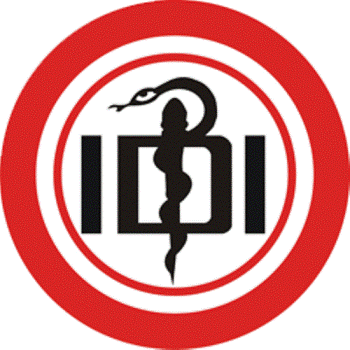Thursday, 16th July 2009
FIGO Position Statement
Professional standards: Interactions between obstetricians and gynecologists and other health professionals
Statement of Principle:
The obstetrician and gynecologist should not only maintain clinical competence, but should also work collaboratively with other health professionals to reduce medical error, increase patients’ safety, minimize overuse of healthcare resources, and optimize the outcomes of care. ·
The obstetrician and gynecologist should:·
Ensure that interactions with other health professionals are always respectful and considerate and recognize the skill sets of the other health professionals.
Communicate truthfully and sensitively with all other health professionals with whom he/she interacts.
Not discriminate when interacting with other health professionals on the grounds of age, race, color, ancestry, place of origin, political belief, religion, marital status, physical or mental disability, sex, sexual orientation or unrelated criminal convictions.
Respect the personal boundaries of others including, but not limited to, refraining from making unwanted physical or emotional approaches, protecting personal information, and respecting individual workspace.
Treat patients and families with respect and dignity in all discussions with other members of the healthcare team.
Not criticize any other health professional in an untruthful, misleading or deceptive manner to patients or other health professionals or the general public
Appropriately acknowledge contributions made by other health professionals to research projects and to other publications.
Communicate and cooperate with other health professionals to the full extent necessary to serve the best interests of the patient.
Maintain an open and professional relationship with other health professionals by: (1) clear communication, with due regard to privacy and confidentiality; and (2) cooperation, collaboration, and teamwork (to reduce medical error, increase patients’ safety, minimize overuse of resources and optimize the outcomes of care).
Not engage in exploitative relationships with other health professionals for emotional, financial, research, educational or sexual purpose.
Provide ethical and professional support to other health professionals.
Report professional misconduct and insufficiently-skilled practice to the appropriate authorities, respecting the need to avoid unjustly discrediting the reputation of other health professionals. The doctor should also facilitate professional help and care for the other health professional if it is indicated.
Act with scrupulous fairness when required to act as an expert commenting on the professional practice and behavior of another health professional.
Advocate for the rights and security of each health professional to practice their profession within the law and with protection from interference or intimidation from any source.
Not compel another health professional to act contrary to their moral conviction or religious belief, except as required by law and as delineated in FIGO’s position on conscientious objection.
Promote professional behavior and help to resolve disputes between health professionals.
With specific reference to the trainer/trainee–teacher/student relationship:
The obstetrician and gynecologist should:
Model professional behavior for trainees.
Teach the concepts of professional behavior, ethical research, and practice.
Provide trainees with challenges to learn, without abuse, harassment or humiliation.
Not engage in sexual or romantic relations with those being taught or supervised.
Provide teaching, supervision, and training while respecting personal boundaries.
Allow the expression of disagreement without the fear of punishment, reprisals or retribution.
Provide clear guidelines to trainees and others regarding assignments, examinations, and test environments.
Provide objective, timely, fair, and constructive evaluations of trainees.
Ensure that the research and clinical teaching environment experiences are appropriate for the needs of the trainee.
Clearly outline for students and trainees the appropriate levels of clinical responsibility.
Allow trainees to decline to perform procedures which they feel are outside their area of competence or inconsistent with their personal beliefs.
References
FIGO document – ‘Ethical Issues in Obstetrics and Gynecology by the FIGO Committee for the Study of ethical Aspects of Human Reproduction and Women’s Health’. November 2006
‘The RANZCOG Code of Ethical Practice’. May 2006
‘The RANZCOG Curriculum’. 2003
Whitcomb ME. Professionalism in Medicine. Acad Med. 2007; 82: 1009
Cohen J. Linking Professionalism to Humanism: What It Means, Why It Matters. Acad Med. 2007; 82: 1029-1032
Medical Professionalism Project. Medical Professionalism in the new millennium: physician’s charter. Lancet. 2002;359: 520-522
Hickson GB. A Complementary Approach to Promoting Professionalism: Identifying, Measuring, and Addressing Unprofessional Behaviors. Acad Med. 2007; 82: 1040-1048
Professional Standards for Faculty Members and Learners in the Faculties of Medicine and Dentistry at the University of British Columbia’. November 2003
Resolution on “Conscientious Objection”. Adopted by FIGO General Assembly 7/11/2006
Discussion
This statement represents the position of FIGO on standards of behavior and communication for the obstetrician and gynecologist in his/her relationships with all other health professionals, whether medical or otherwise.
To serve our patients and our communities we must behave ethically and professionally, not only toward our patients, but also toward all of the other health professionals with whom we work. Such behavior cannot be assumed; more than ever, relationships with other health professionals are being challenged and are proving more challenging.
Professional groups closely allied to obstetrics and gynecology include midwifery and nursing. Role evolution within these professions and the substitution of roles traditionally undertaken by doctors is inevitably creating tensions between the groups concerned. In addition, the promulgation by many schools of midwifery of the “wellness” model in contrast to medicine’s “sickness” model, is creating further challenges at all levels of professional interface. The doctor’s relationships with all those involved in health management can also be trying, particularly when one considers the tempo of change in models of healthcare delivery, the alteration in traditional decision-making hierarchies, and the new paradigms being applied to allocation of leadership in healthcare delivery. Challenges by external bodies to the medical profession’s construct of self-regulation, including by some government agencies and quality and safety monitors, bring their own pressures to bear on relationships between professional groups.
The doctor’s relationship with students, trainees, and with more junior medical professionals has always carried specific dimensions and difficulties, but in recent times further potential stressors have emerged. Included here are changes over time in the demographics of these groups, such as in the age range and gender mix. Undoubtedly too, the introduction of “safe hours” legislation in many jurisdictions is placing pressure on relationships between senior and more junior doctors. There are increasing demands on specialists to not only teach/tutor but to be a “complete” teacher/tutor—a challenge that some doctors can and do find harrowing.
The trend in many countries to increasing specialization and subspecialization within obstetrics and gynecology is placing strains on relationships between doctors. Clear and logical boundaries, within which doctors with varying scopes of practice can base their interactions, are not always evident. Handover of patients and subsequent handback of patients can and does create issues in everyday working situations. The subspecialist/generalist interface can also raise perceptions of status inequalities that can result in tensions, particularly if income streams are affected. It can be argued that matters of standards of behavior and communication simply form one part of the doctor’s broader “Code of Ethical Practice” and that there is much already stated and written to guide the doctor in these areas. Equally, much has been written with regard to professionalism, its relationship to ethical practice, and its place in shaping and influencing the doctor’s standards and behaviors. The underpinning of professionalism by humanism is also well described as a key enabler of true professionalism. Current guidance available to the obstetrician and gynecologist includes: ·
FIGO’s document, “Ethical Issues in Obstetrics and Gynecology” by the FIGO Committee for the Study of Ethical aspects of Human Reproduction and Women’s Health.” Included within this document (page 26) is a statement alluding to “Professional Obligations to fellow Obstetricians Gynecologists.”
Many of FIGO’s member societies have their own codes of Ethics and/or Ethical Practice, some of which are based heavily on FIGO documents. In addition, member societies frequently have curriculum documents that may make reference to these matters.
Positions and statements of national licensing authorities and representative associations, including Medical Councils and Boards.
Professional charters and codes of Universities, Schools of Medicine, and faculties.
However, even within these resources there is a relative paucity of consolidated, clearly articulated, and readily accessible information relevant to a doctor’s conduct and practice when interfacing with other health professionals. In presenting this statement, FIGO, as the lead body in the specialty, aims to guide the obstetrician and gynecologist in these matters and to shape practice across all of its member societies.
Accessibility | Contact us | Privacy policy | Sitemap | Terms & conditions
FIGO Secretariat, FIGO House, Suite 3 - Waterloo Court, 10 Theed Street, London, SE1 8ST, UK
BLOG DOKTER SPESIALIS KEBIDANAN DAN PENYAKIT KANDUNGAN ( Obstetric's & Gynecologist Blog ) Sumatera Barat.,Indonesia
SAVE YOUR BABY'S, SAVE NEXT GENERATION'S
SAVE YOUR BABY'S, SAVE NEXT GENERATION'S
Search This Blog
- Universitas Andalas Website
- TRIGEMINAL NEURALGIA LECTURES AND TREATMENT
- Maternal and Child :Research and Article
- dr Firman. Abdullah SpOG/ OBGYN .Personal Edition
- dr Firman Abdullah SpOG / ObGyn.com
- Dr Djohanas Djohan Abdullah Memorial Hospital.com
- Bukittinggi International Hospital.com
- Aliansi Rakyat Anti Korupsi Bukitinggi.com
Jam Gadang.Bukittinggi. Sumatera Barat .Indonesia
24.jpg)

Bung Hatta statue ,Bukittinggi
About me.....
IKATAN DOKTER INDONESIA (IDI).Sumatera Barat

INDONESIAN MEDICAL ASSOCIATION
ASSALAMUALAIKUM........
dr Firman Abdullah SpOG / OBGYN
Peer - Review..Cyberounds
Blog Archive
-
►
2008
(1)
- ► March 2008 (1)
-
▼
2009
(387)
- ► April 2009 (87)
-
▼
July 2009
(78)
- POST PARTUM DEPRESSION, MAYO CLINIC
- Aerobic exercise: Top 10 reasons to get physical
- Exercise and depression: A means of self-mangement...
- Prenatal education for congenital toxoplasmosis
- Treatments for toxoplasmosis in pregnancy
- Vaccines for women to prevent neonatal tetanus
- Routine prophylactic drugs in normal labour for re...
- Transient neurologic symptoms (TNS) following spin...
- To have or not to have: The critical importance of...
- Genital herpes in pregnancy: information for you
- Maternal positions and mobility during first stage...
- OVARIUM CYST
- BARTHOLINI CYST
- LEARN ABOUT CYTOMEGALOVIRUS
- Primary versus Nonprimary Cytomegalovirus Infectio...
- Detection of Parvovirus B19, Cytomegalovirus, and ...
- Common virus could cause high blood pressure
- Definition of Follicular cyst of the ovary
- The management of infants and children treated wit...
- Congenital cytomegalovirus infection in pregnancy:...
- FIGO Position Statement on Professional Standards
- FIGO Reaffirms Stance on Eliminating Female Genita...
- WHA for FGM resolution
- Countdown to 2015
- FIGO Awards In Recognition of Women Obstetricians/...
- FIGO launches project to improve maternal and newb...
- Breast screening 'the best discovery tool
- Ultrasound 'outperforms symptom analysis' on ovari...
- Invest in women, invest in society, UN official cl...
- Medical care needed' for miscarriage sufferers
- Caesarean 'should not be automatic choice for bree...
- Inadequate health care 'still costing lives'
- Natural birth techniques 'can be very efficient'
- Maternal mortality rates 'have not improved since ...
- Pregnant women and newborns 'most at risk from flu'
- Many induced labours 'should be avoided'
- Work demands 'can impact on pregnancy'
- Stillbirth conference aims to raise awarness
- Mothers 'should be aware of birth options'
- Pelvic exercises 'can help with childbirth and rec...
- Mother's diet 'can lead to medical complications'
- Cytomegalovirus infection and haemophagocytosis in...
- Severe cytomegalovirus (CMV) community-acquired pn...
- The management of infants and children treated wit...
- Congenital rubella infection after previous immuni...
- Antiviral therapy for herpesvirus central nervous ...
- RCOG statement on ‘It’s good for women to suffer t...
- Royal College of Obstetricians and Gynaecologists
- The Challenge of MDGs 4 and 5, South Africa
- RCOG/RCM statement – Advice on swine flu and pregn...
- Pregnancy, Breastfeeding and Swine Flu A/H1N1
- Postnatal quality of life in women after normal va...
- Systematic review of effect of community-level int...
- Peripartum cardiomyopathy
- Pulmonary embolism and pregnancy
- Amniotic fluid embolism
- Airway problems in pregnancy
- Acute asthma in pregnancy
- Circumcision helps protect men, not women from AIDS
- Health Tip: Help Prevent Birth Defects Steps you ...
- Health Tip: Does Your Child Have Symptoms of ADHD?
- Alzheimer's Disease
- The Problem with Adhesions
- The impact of adhesions on endometriosis
- Pain and Endometriosis
- Endometriosis and bowel symptoms
- Mesoprogestins (Asoprisnil) in the treatment of en...
- Diagnosis and long-term management of endometriosis
- Endometriosis Image Library
- Progesterone resistence in endometriosis
- BJOG release: Vaginal delivery vs elective caesare...
- Childbirth aged 35 and over - query bank
- Secondary cytomegalovirus infection can cause seve...
- Epilepsy research
- H1N1 flu (swine flu)
- Four things you can do to prevent infections
- Infections in newborn babies
- Fetal hydrocephalus
- ► August 2009 (54)
- ► September 2009 (21)
- ► November 2009 (4)
- ► December 2009 (11)
-
►
2010
(45)
- ► January 2010 (6)
- ► February 2010 (11)
- ► March 2010 (1)
- ► April 2010 (7)
- ► November 2010 (2)
-
►
2011
(4)
- ► February 2011 (2)
- ► March 2011 (2)
FEEDJIT Live Traffic Feed
Discussion Board
FEEDJIT Live Traffic Map
FEEDJIT Recommended Reading
FEEDJIT Live Page Popularity
dr Firman Abdullah SpOG / OBGYN

Subscribe to:
Post Comments (Atom)
BMI CALCULATOR
ACHMAD MOCHTAR GENERAL HOSPITAL BUKITTINGGI

RUMAH SAKIT ACHMAD MOCHTAR BUKITTINGGI
Firman Abdullah Bung
drFirman Abdullah SpOG / ObGyn

KELUARGA BESAR TNI-AD
Dr Firman Abdullah SpOG/ OBGYN, Bukittinggi, Sumatera Barat ,Indonesia
Bukittinggi , Sumatera Barat , Indonesia

Balaikota Bukittinggi
dr Firman Abdullah SpOG / OBGYN

Ngarai Sianok ,Bukittinggi, Sumatera Barat.Indonesia

Brevet in Specialist Obstetric's & Gynecologist 1998

dr Firman Abdullah SpOG/ObGyn


Dokter Spesialis Kebidanan dan Penyakit Kandungan . ( Obstetric's and Gynaecologist ) . Jl.Bahder Johan no.227,Depan pasar pagi ,Tembok .Bukittinggi 26124 ,HP:0812 660 1614. West Sumatra,Indonesia
Sikuai Beach ,West Sumatra ,Indonesia


Fort de Kock, Bukittinggi






No comments:
Post a Comment